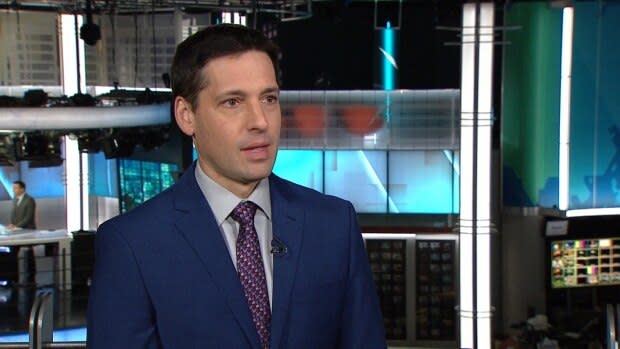Hundreds of Quebec families still don't have a lease after moving day
Social housing group Front d'action populaire en réaménagement urbain (FRAPRU) says it is alarmed by the shortage of rental housing this year, warning that if the Quebec government does not put in place adequate measures, more people will be at risk of becoming homeless.
In its annual report published one day after moving day, the group said more than 370 families were left without a new lease. The group says it is continuing to help those families find lodging.
"You have to imagine the anxiety of families, victims of conjugal violence, those living in precarious conditions, the elderly and more, who live in uncertainty, in fear of homelessness, at risk of being uprooted from their environment," said Véronique Laflamme, a spokesperson for FRAPRU.
The situation is worsened by the pandemic, says the group.
With evictions allowed to resume this month, tenants could also be left out on the streets, FRAPRU says.
It says at least 1,350 households, including 182 in Montreal, were given emergency aid this year.
The provincial government was also singled out in its report for waiting too long to publicize assistance for renters unable to sign a new lease.
The Quebec government says it received 522 requests for emergency aid on moving day.
Of that number, 276 households were able to sign a lease, and 246 are in temporary accommodation, staying with family or in a hotel.
A spokesperson for the City of Montreal said they provided emergency housing for 43 households on July 1.
FRAPRU is calling for 10,000 new social and community housing units to be funded by the province in the next year. The province says it has already built nearly 3,000 social housing units, and that it is committed to building more.
'I think these numbers are not so big'
Hans Brouillette, the director of public affairs for the Quebec Landlords Corporation (CORPIQ), does not agree with that solution, nor does he think the numbers are very significant.
"With 1.3 million household renters in Quebec, I think these numbers are not so big," said Brouillette, who speaks for the largest association of landlords in the province.

Brouillete says instead of building social housing, the government should give money directly to tenants, so they are able to pay rent in private buildings.
He said there are also currently thousands of apartments available, with nobody living inside, but many tenants don't have the money to pay rent, have bad credit scores or because they don't have a stable income.
"We can understand that it was very difficult to find an apartment this spring, but we also have tenants who are trying to benefit from the situation, to take advantage of the situation to extend a lease and in most cases, without paying."
FRAPRU says that giving people access to affordable housing is the answer, because it is a long-term solution.
"People are just facing private housing, rental market housing, which means the landlord behind that is trying to find profit," said Youssef Benzouine, an organizer with FRAPRU.
"Social housing is really the alternative to private housing. If we had more social housing built in the past years, probably it would have helped."

